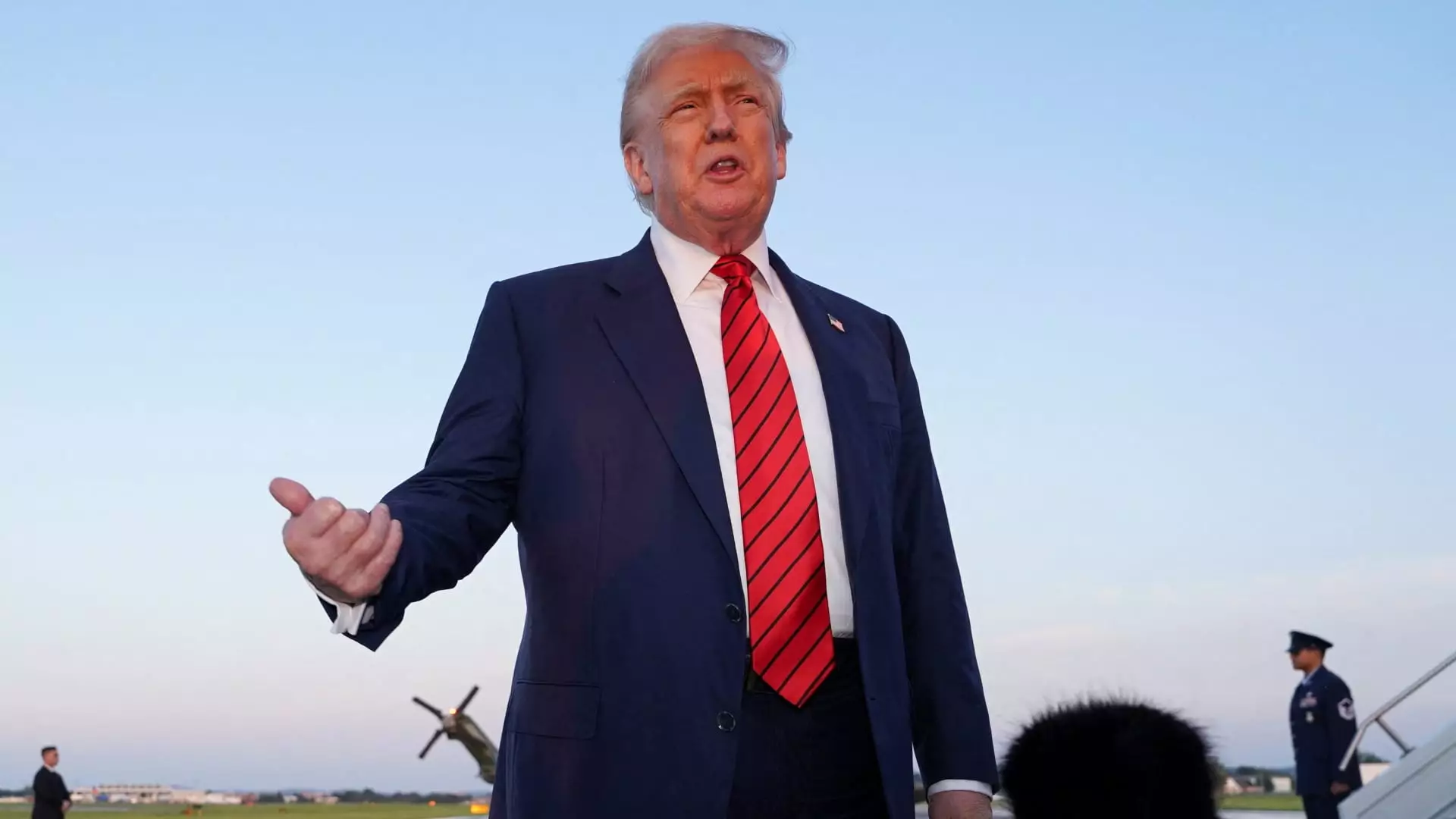At first glance, President Donald Trump’s latest threat to impose soaring tariffs on imported pharmaceuticals appears to be a bold move towards safeguarding American manufacturing. The promise of reaching tariffs as high as 250% seems designed to shock and force the industry into reshaping its priorities. However, deep down, it reveals a fundamental misunderstanding of the delicate intricacies of the pharmaceutical ecosystem. Such an aggressive stance prioritizes nationalist rhetoric over pragmatic solutions, risking long-term harm to both innovation and patient care. The assumption that financial pressure alone can reliably incentivize companies to relocate manufacturing neglects the complex blend of regulatory, scientific, and logistical hurdles that underpin these industries.
Moreover, the tactic of escalating tariffs within a prescribed timeline echoes past policies lacking foresight—an unpredictable tool that often backfires. Historically, tariffs have succeeded only in boosting prices for consumers or prompting retaliatory measures, neither of which serve America’s health interests. The president’s language underscores a desire to manipulate the market mechanism without genuine concern for the nuanced realities of pharmaceutical R&D and manufacturing—industries deeply rooted in high costs, strict regulation, and global supply chains. If the goal truly is to boost domestic production, a more intelligent, strategic approach grounded in innovation incentives, tax reforms, and public-private partnerships would be far more effective than reckless tariff threats.
The Flawed Fix: National Security or Economic Recklessness?
The invocation of the Section 232 investigation signals an attempt to frame pharmaceutical imports as a matter of national security. While protecting critical industries is an understandable concern, it’s essential to question whether this approach is rooted in actual security threats or simply an extension of economic nationalism. The notion that reducing foreign reliance through tariffs will reinforce national security disregards the sophisticated global interconnectedness that underpins the pharmaceutical supply chain.
By emphasizing “self-sufficiency,” the Trump administration dangerously oversimplifies the realities of modern medicine. Pharmaceutical manufacturing is highly specialized and requires collaboration across borders; insulating the industry entirely risks production bottlenecks, delays, and ultimately, compromised patient safety. The current threats to bring production back home resemble a fear-driven panic rather than a rational recalibration. Reinforcing domestic capabilities through targeted investments and strategic partnerships would be more productive, rather than relying on punitive tariffs that threaten to disrupt the delicate balance needed to sustain innovation and ensure affordable healthcare.
The Collateral Damage: Patients and Innovation at the Crossroads
Perhaps the most troubling aspect of Trump’s tariff threats is their potential fallout on American patients and the broader biotech landscape. The pharmaceutical industry has voiced grave concerns, warning that such tariffs could increase drug prices, restrict access, and stifle innovation. These warnings should resonate as a stark reminder that health policy cannot be subjected to the whims of political posturing. The industry’s investment in R&D, especially in groundbreaking therapies and cures, is driven by stability and predictable policies—not by tariffs that may distort market signals and increase costs.
Furthermore, Trump’s aggressive push to tie drug prices to foreign costs—under the “most favored nation” policy—perpetuates a misguided myth that prices abroad are inherently lower due to unfair practices. While there are price differences across countries, these are often rooted in complex healthcare systems, government negotiations, and different regulatory standards, not outright market manipulation. Tying U.S. drug prices solely to foreign levels risks undermining the innovation engine that has historically made American pharmaceuticals world leaders.
In the end, these policies amount to an ineffective patchwork of political maneuvers that threaten to derail the progress we’ve made. Instead of fostering a climate conducive to innovation, they send an unfortunate signal to investors and researchers: that policy is unpredictable, and that the government may prioritize short-term nationalism over the long-term health and economic security of its citizens.
Unquestionably, the game of tit-for-tat tariffs will do little to resolve underlying issues within the pharmaceutical industry. Instead, it exposes a shortsighted approach that prioritizes symbolic victories over substantive solutions—an approach that could ultimately deprive Americans of the life-saving innovations they deserve.

